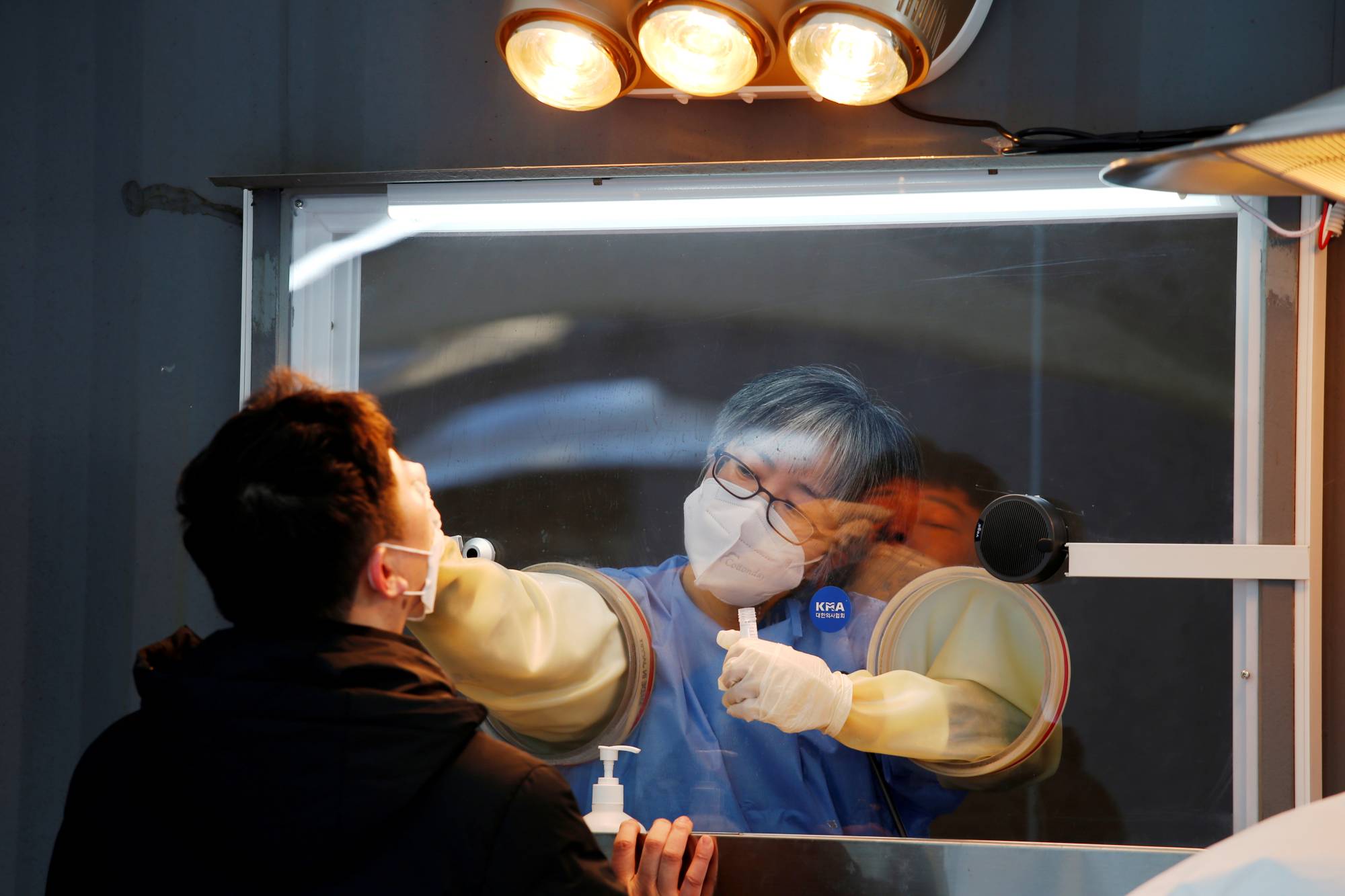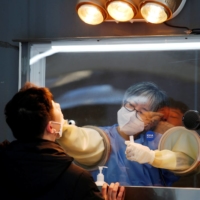South Korea's COVID-19 surge continued on Saturday, with a lack of hospital beds raising concerns in a country that has kept fatalities low despite a third wave of the disease.
The Korea Disease Control and Prevention Agency (KDCA) reported 1,053 infections of the new coronavirus, a record fourth consecutive day of more than 1,000 cases.
South Korea has recorded 659 COVID-19 deaths out of 48,570 infections, a comparatively low mortality rate attributed to aggressive tracing and testing for much of the year, which minimized the strain on hospitals, allowing them to focus on seriously ill patients.
The mitigation efforts made the country a global success story when many nations saw soaring infections, prompting wide lockdowns.
But the recent surge — stemming from widespread clusters rather than the large, isolated outbreaks of the first two waves — has caused a severe shortage of hospital beds.
Only four critical-care beds were available as of Friday in greater Seoul, an area with almost 26 million people, data showed.
Six people with COVID-19 have died in South Korea this month waiting for beds, and hundreds cannot get admitted as infections overload the health system, officials and media said on Friday.
The number of severely ill patients reached 275 on Saturday, up from 97 on Dec. 1, KDCA data showed.
Despite the surge, the government has refrained from raising social distancing restrictions to the highest level, which would mean ordering 1.2 million business to suspend operations.
Prime Minister Chung Sye-kyun said on Friday that "social consensus" would be necessary for such a move, given the burden on businesses.



















With your current subscription plan you can comment on stories. However, before writing your first comment, please create a display name in the Profile section of your subscriber account page.